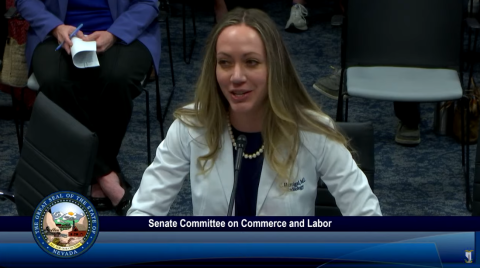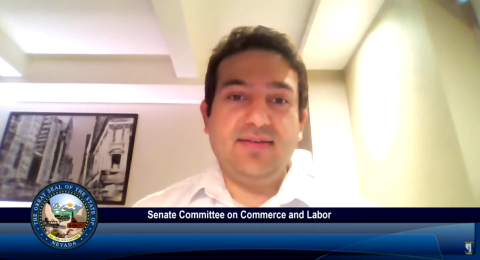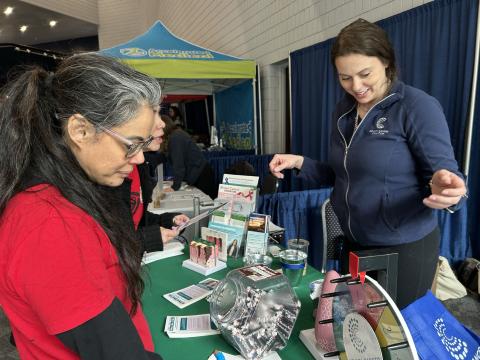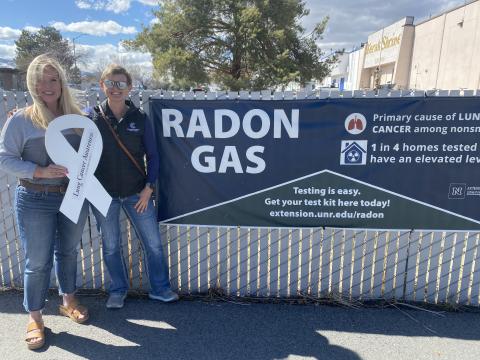Lung Screening Bill Receives Support at Nevada Legislature
03 March, 2025
A bill to improve access to lung cancer screening with low-dose computed tomography (LDCT) received support on Friday, March 21 from a number of statewide organizations who testified in favor of the legislation. Senate Bill 387, sponsored by Senator Roberta Lange, would add lung cancer screening to the list of cancer screenings required to be covered by Nevada insurers with no cost sharing or copays.
Nevada statute requires health insurance policies to pay for breast, cervical, colorectal, and prostate cancer screenings with no cost-sharing. SB387 would extend screening coverage for those at high risk of lung cancer—individuals aged 50 to 80 who meet specific smoking history criteria (e.g., at least 20 pack-years). Similar to provisions in Nevada law covering breast cancer screening, follow-up diagnostic services based on screening results would also be covered.

As radiologist Dr. Chivonne Harrigal testified, lung cancer is the leading cause of cancer deaths in Nevada by far, taking the lives of more people each year than colorectal and breast cancer combined. According to the American Cancer Society, an estimated 1,800 Nevadans will be diagnosed and 940 will die of lung cancer in 2025.
“Why is lung cancer so deadly?” she asked. “Because it’s usually found too late. The good news is that we now have a way to catch lung cancer earlier when it’s easier to treat. This low-cost, low-dose CT scan is an easy five minute test that has been shown to saves lives.”
Dr. Vishisht Mehta is a fellowship-trained interventional pulmonologist and expert in lung cancer screening and treatment. He agreed that passage of SB387 would save lives with its increased access to lung cancer screening.
“Most cases [of lung cancer] are unfortunately found too late, and at that time treatment options are limited,” he said. “The best tool to fight this is low-dose CT screening which has been proven to reduce lung cancer mortality. As a physician, I have seen firsthand the devastating impact of late-stage lung cancer. I have also seen the benefits and power of early detection. Patients’ cancer is found early, they are effectively treated, and their lives are saved.”

Data from the National Lung Screening Trial shows that the use of newer tools – like LDCT – and evidence-based screening recommendations can result in a 20% relative reduction in mortality from lung cancer versus plain film radiograph. However, effective uptake of this screening method is hampered by awareness, access, and cost. A Nevada-based study conducted by researchers at Desert Radiology and Mountain View Hospital in Las Vegas found that 24% of study participants weren’t aware of low-dose CT screening and 17% said cost was a barrier to screening.
Multiple organizations testified in support of the bill including American Cancer Society, Nevada State Medical Association, Nevada Oncology Society, and Nevada Cancer Coalition.
Both Drs. Harrigal and Mehta are lung cancer screening champions working with Nevada Cancer Coalition to increase lung cancer screening in Nevada.
You May Also Like

April 2025 Awareness Month Materials
03.28.2025
April is the awareness month for both Head & Neck cancers and Testicular cancer.

NCC Travels I-80 Educating Nevadans on Cancer
03.24.2025
Every March the team from Nevada Cancer Coalition hits the road, traveling along Interstate 80 to attend the popular Humboldt General Hospital Hea

Celebrating Partnership & Progress in Radon Awareness
01.31.2025
The Nevada Radon Education Program (NREP) has been working with the Nevada Cancer Coalition and many other partners in spreading awareness about t